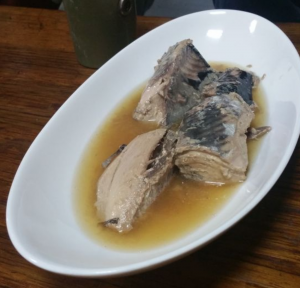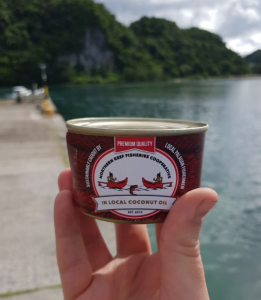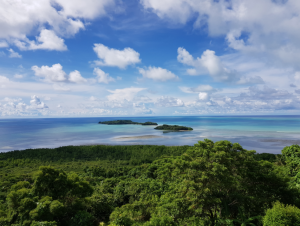Hedonic escalation
Issues impacting on food product development continue to evolve and become more complex. FoodStream can help guide your company through this maze. Contact us on foodstream@foodstream.com.au.
The challenge from an ever growing range of competitors, technologies and issues is daunting. The key point is that business as usual is unlikely to be effective and that identifying new markets for new products based on quality made using the best technology is likely to be the sustainable way ahead. Hedonic escalation is the heightening of taste that comes with a combination of sugar, salt and fat, eg salted caramel ice cream, which can create “seemingly limitless” cravings. So, is that a ‘formula’ for product development?
Possibly not, given the growing importance of health issues.
For example, the obesity issue will not go away and is likely to be ever more a subject of discussion. The Australian Medical Association is calling for a major program to improve the nutrition and eating habits of Australians, see https://ama.com.au/position-statement/nutrition-2018#references. Such pressure will create problems for those companies which do not adapt and opportunities for those which do.
A key is knowledge, which, according to Steve Wozniak, co-founder of Apple Inc, is more important than nations. The trouble is that knowledge is available to everyone. A key is to identify a specific market niche and use the best technology as well as developing new products.
SPC Ardmona, which used to be a basic fruit cannery, has announced contracts in China for packaged fruit products with proven provenance, ProVital new portion controlled, easy-to-open fruit cups designed for the ageing population and the new Fibre Right Puree range to be sold into the healthcare and pharmacy sectors. SPC has also undertaken significant investment so presumably they have good technology as well.
Australian supermarkets have had a major push on cutting prices. However, the bank UBS has done a survey of supermarket suppliers and a key finding was that Coles have focussed on price whereas Woolworths has a broader strategy. A key is that Woolworths is making better profits than Coles.
Thinking about price, is the Aldi low price the way or is it Whole Foods quality, http://www.wholefoodsmarket.com/, the US high end organics chain that Amazon bought for several billion dollars. This suggests that Amazon may not be focussing only on price.
Speaking more on price, considering the price of 500g jars of marmalade in supermarkets:
- Coles housebrand marmalade is $1 30, made in Poland, where presumably labour costs are lower.
- Woolworths housebrand marmalade is $1 40, made in Belgium, presumably based on scale, not lower labour costs.
- IXL Australian made marmalade if $3.75 for 500g.
What is the answer for Australia? Probably to identify a market niche, as SPC Ardmona has done, and to use the best technology to keep quality high and costs low. Surely, we cant match low costs and scale.
One way to identify new markets is to make the most of the range of current and new free trade agreements negotiated by government.
Hyperspectral technology?
Technology is changing in all directions. FoodStream can help sort out the issues.
Hyperspectral imaging, like other spectral imaging, collects and processes information from across the electromagnetic spectrum. The goal of hyperspectral imaging is to obtain the spectrum for each pixel in the image of a scene, with the purpose of finding objects, identifying materials, or detecting processes.
The opposite is to use UV, IR or another more limited spectrum of analysis.
Hyperspectral cameras work by emitting a certain spectrum of light, from the spectrum humans can see to near -infrared, and then creating an image of the light that reflects back. The reflection allows the chemical composition to show in the image. With the right baseline data and often the help of some artificial intelligence, these images allow algorithms to detect things no other image and certainly no human eye can.
There are two main areas where hyperspectral imagery is currently being put to use are in food and agriculture, but more are likely on the way as this technology democratizes.
The Food Agility Cooperative research Centre, see http://www.foodagility.com/, aims to link the wide variety of sensors now available and using the data aggregation systems developed for the finance world to turn all this data into useful information. The CRC is only six months old and has focussed on organisational and governance systems to date. They have $210M in research funding and are looking for partners. A key partner with the CRC is the European electronics company Bosch, which will be a key player in not only research but in commercialisation.
For those who think, oh yeah, when you see yet another story about electric cars etc, consider:
- The chip maker Intel has paid $15 Billion, yes Billion, for the Israeli electronics company Mobileye, see https://www.mobileye.com/, the global leader in the development of vision technology for Advanced Driver Assistance Systems (ADAS) and autonomous driving. Their technology is used by 25 different auto manufacturers and is in 15 million cars.
- The UK company Dyson, best known for vacuum cleaners and hand dryers, is investing $1B, along with 400 engineers, to develop an electric car, to be in market by 2020.
- The UK market for diesel cars has slowed significantly, possibly as people worry about selling their diesel in say five years.
A new genetic technology CRISPR, which allows selective gene editing with no insertion of new DNA, is advancing rapidly, see https://ghr.nlm.nih.gov/primer/genomicresearch/genomeediting. This is seen as having huge potential. The Australian Office of the Gene Technology Regulator, OGTR, which regulated genetically modified organisms, is proposing to allow legislation to be changed to allow much wider use of this technology.
Blockchain for you? And other management issues.
The message is that new technology and changed markets are here to stay. FoodStream can help with understanding the new technology. Key issues for management include:
- While the popularity of bitcoin, whatever that is, continues to fluctuate, blockchain continues to grow. Blockchain is software that allows payment to be made without a third party, ie a bank. The Australian Stock Exchange has announced that it will be moving to blockchain technology for payments. NOTE: mortgaging your house, as some are said to have done, to invest in bitcoin, is very definitely not recommended.
- The Australian Financial Review BOSS Magazine for March has several articles saying that many companies are coming to the end of cost cutting and are now looking for growth opportunities.
- The Australian Government has released its innovation strategic plan: Australia 2030: Prosperity through Innovation – a plan for Australia to thrive in the global innovation race. See https://www.innovation.gov.au/event/released-australia-2030-plan. A key element here is a foreshadowed move away from R&D tax incentives to direct grants. Watch this space for more news.
- New legislation has made it easier to invest, and seek investment via, crowdfunding for retail investors, ie those not professional investors. This should make such funding more available for new start ventures. As always with finance, good legal and accounting advice is essential.
- A range of reports suggest that Africa is developing, slowly but surely. The wide availability of mobile phones, more than 80% of Kenyans own a mobile, has opened up mobile banking. Kenya is now a major player in mobile phone banking software. African agriculture is growing. Australia imported 10.25 million (yes million) stems of red roses from Kenya last Valentine’s Day!
Retail continues to be in flux.
Stories of change, and problems, in the retail sector abound. For example:
- A survey of 45 supermarket suppliers by the bank UBS showed Woolworths ahead of Coles on nearly every variable. UBS interprets that data as saying that Coles focus on price above all has put them further behind. Quality, customer service and others were important.
- Amazon is up and running in Australia, and no-one knows what this might mean. Threats to traditional retailers are likely but new opportunities for sale of low volume, speciality goods may arise. Amazon in the US sells for many small manufacturers.
- Myers and David Jones are experiencing lower profits as buying patterns change. David Jones new food halls are said to be successful.
- Wesfarmers may close Target, or at least reduce store numbers, again as buying patterns change.
- Coopers Breweries in South Australia has bought a chain of home brew shops in the US. These are having problems as many are now buying home brew ingredients on-line.
These changes suggest that those with smaller companies making speciality products could consider new sales avenues via on-line.
NEWS ON THE MICRONESIA MICRO-CANNING PROJECT
Since 2015, Chris has been working with the Parties to the Nauru Agreement (PNA) office to develop low cost but safe micro scale (less than 100 cans/batch) cannery operations for pacific island nations. PNA member countries are spread throughout the western pacific: Federated States of Micronesia, Kiribati, Marshall Islands, Nauru, Palau, Papua New Guinea, Solomon Islands and Tuvalu. Foodstream and PNA are now receiving assistance from DFAT through the LAUNCH programme to improve the course materials, run more training courses and provide more technical resource and support to students.
So far, training sessions have been run in the Marshall Islands, Solomon Islands, Palau and Samoa with students also from PNG, Kiribati, Federated States of Micronesia and the Autonomous Region of Bougainville. Later this year, sessions will likely be run in Nauru, Kiribati, Solomon Islands and PNG.
Chris has just returned from Samoa where he met with students from Tokelau for a week of training. Tokelau is a group of 3 atolls, only accessible by boat a few times each month, and the trip takes about 30 hours! Because of this isolation, food security is an ongoing concern and part of the LAUNCH project will be carrying out a food bank study to assist them in their preparations for natural disasters.
Majuro, in the Marshall Islands is the busiest trans-shipment port for Tuna in the world. Approximately 50% of the world’s skipjack tuna (the most common species for canning) is caught in PNA-controlled waters and about 1/3 of that is trans-shipped through Majuro. Because of this, there is a huge amount of not-quite-perfect fish going to waste. A local group is now using some of the bycatch and rejected tuna (eg, missing a fin) to produce a premium raw-pack product as an import replacement for the local market. The raw-pack tuna needs more care in preparation and has tighter timeframe limits on handling of the raw fish but results in a flavoursome product with about 3-5x the omega3s found in commercial Tuna. Maybe John West shouldn’t be so picky?
A local fishing group in Palau who attended training last year is tapping in the strong tourist market and selling premium souvenir cans of fish, and preserving their excess for local consumption, saving it from being dumped. Other opportunities sometimes arise for the group too – while Chris was in Palau, an unauthorised fishing boat was captured, and the fish handed over to the locals. The micro-canning plant was able to preserve some of this for later use.
A group in Bougainville is sourcing a small commercial retort with plans to process local produce such as pineapple, pork and chicken. It is early days for this venture but we’re staying in touch and hoping to see some exciting outcomes.
Chris is expecting to have a busy couple of months coming up on this project, send us a message if you’d like any more information.

Skipjack tuna processed raw pack with only water added (Brine freezing left it salty enough). Note all the natural oils from the skin.

Can of tuna produced in Palau by a local fisherman group.

Scenery could be worse. Visiting the northern tip of Palau – these are the mud flats..
TRAINING NEWS
As this newsletter goes out, we are presenting our annual extrusion and drying courses in Norway – for aquafeed and petfood industries. In February we held our first Food Extrusion Technology course in Sion, Switzerland, in cooperation with HES-SO – the University of Western Switzerland. The course went very well, with 30 participants from twelve different counties. Feedback was excellent, and we are invited back to run it again at the same time next year. The following photo shows the group in the HES-So pilot plant.

Outside the course was also magnificent!

The joint FoodStream/ CSIRO “Food Drying Technology” course has also been held at Werribee in Victoria. This year a sell-out with 30 participants from a wide range of companies/industries. Registrations are now open for a Drying Course being held in conjunction with The Foodbowl in Auckland, 21 & 22 May – register through FoodBowl. This course will highlight new drying technologies available at The FoodBowl – Bucher continuous vacuum drying technology, and Enwave microwave vacuum drying. Freeze dryer manufacturer Cuddon will also present at the course.
ANY INTEREST IN RETORT TRAINING IN JUNE/JULY? We have presented Retort Supervisor’s Courses on-site for two companies so far this year, plus our Melbourne course. Following an enquiry from another major company, we are looking at offering a course again in June/July. Please contact Gordon Young gyoung@foodstream.com.au if you may be interested in joining that program.
Registrations also open for:
- JUST ANNOUNCED
Short course in Thailand on “Retort (Canning) Process Design, 18 to 20 July. Details at https://fie.com.au/events/retort-process-design-thailand. - Applied Food & Feed Extrusion, Thailand, 23 to 25 July 2018 at the Institute for Food Research & Product Development, Kasetsart University, Bangkok, Thailand. (Note date of this program has been adjusted due to a public holiday declared for the birthday of the new King of Thailand).
- Food & Feed Extrusion, Australia. At CSIRO Werribee 20 to 22 August.
JUST ANNOUNCED
We are cooperating with the University of Temuco, Chile, to present our first Aquafeed Extrusion Technology course in South America, 22 to 24 October 2018.